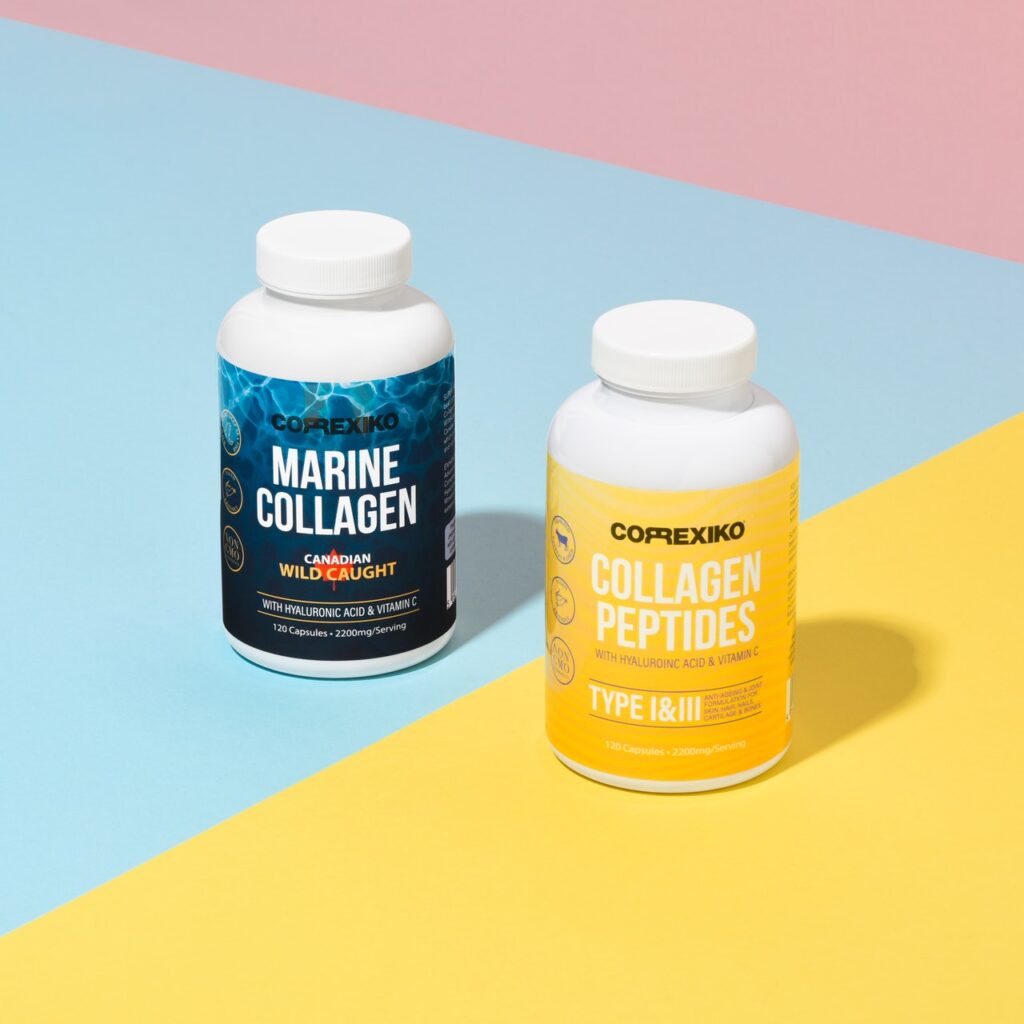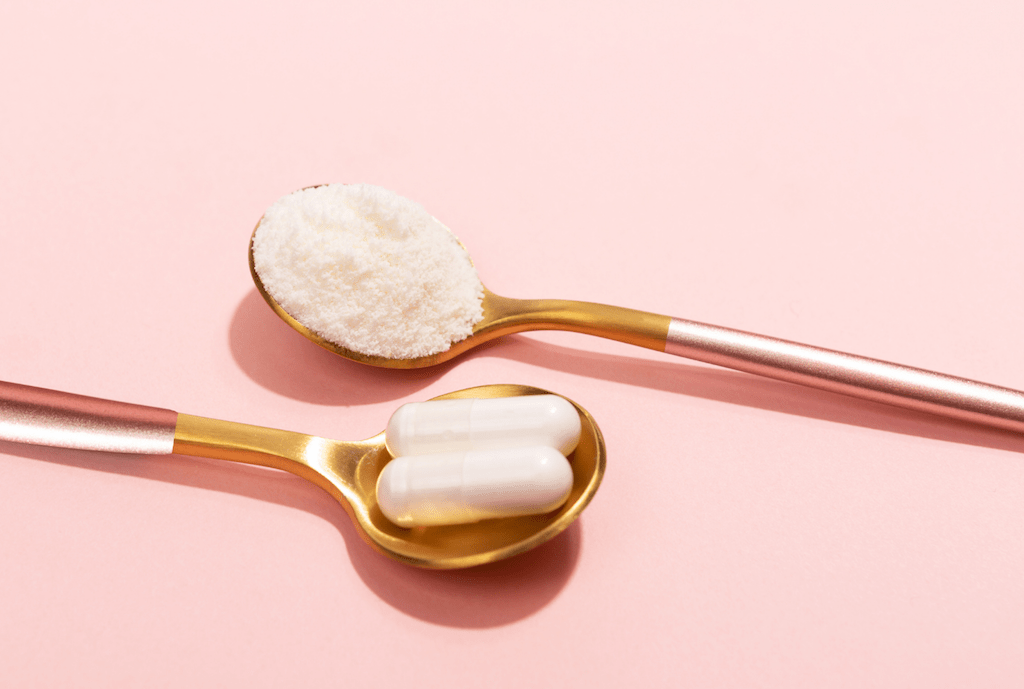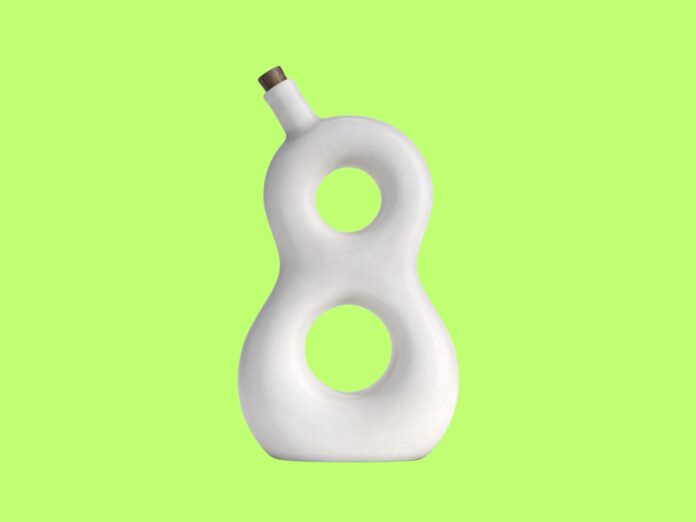The most prolific protein in the body, collagen is perhaps most well known for the role it plays in ensuring supple, glowing skin. But in actuality, collagen is also found in the bones, muscles and tendons, and is a key building block in ensuring the body’s strength and structure.
But you knew all of that already, right? Discussion of collagen’s benefits in beauty columns and scientific papers is nothing new or novel, and its associations with youth and visual vibrancy have long been a source of inspiration to the cosmetics industry. In fact, it appears in a vast array of beauty products ranging from creams, elixirs, sprays and drops. So far, so topical.
More recently, however, the idea of taking collagen generally, in the form of supplements, has gained traction, and several celebrities have pledged allegiance to the stuff, with Jennifer Aniston, Kim Kardashian and Gemma Collins among its fans. If you’re wondering whether you should join the collageneration and take a collagen supplement then read on; here are 5 of your questions answered.
SO, WHAT IS COLLAGEN?
Not satisfied with our introductory explanation? Let’s dive in a little deeper…
Collagen is produced in the body and is its most plentiful protein, making up a full third of the body’s protein composition and a massive 80% of your skin. Collagen lends structure to the body, especially to bones, ligaments, tendons and the skin.
As we get older, our bodies produce less quality collagen over time, which is why we begin to notice a deterioration of the skin (lines and wrinkles), the nails (becoming thin, yellow, or brittle), and the joints (hello, weird aches!). Collagen is also damaged by environmental factors such as sunlight exposure, smoking, and poor nutrition, with processed foods particularly detrimental.

WHAT IS THE ORIGIN OF COLLAGEN SUPPLEMENTS?
Collagen supplementation has been around for centuries, finding its rudimentary beginnings in ancient China, when a concoction made from donkey hides was often referred to as a “miracle elixir” and used over many centuries in the belief that it extended life and improved health.
In modern times, studies have been pursued since the 1990s linking collagen to improvements in joint health. In fact, this is the most heavily researched branch of collagen use, with generally positive findings. Newer to the field is the study of collagen supplementation for improved skin elasticity and anti-aging properties.
A Systematic Review conducted in 2019 concluded that “Preliminary results are promising for the short and long-term use of oral collagen supplements for wound healing and skin aging. Oral collagen supplements also increase skin elasticity, hydration, and dermal collagen density.”
Collagen has been backed by research as well as anecdotal evidence in its ability to nourish and support skin, hair, nails, and improve joint health. This combination of benefits almost justifies its miracle elixir status in ancient China.
WHY DO I NEED A SUPPLEMENT? CAN’T I JUST FIND COLLAGEN IN MY DIET?
That’s actually two questions, but we’ll let you off.
You can’t find collagen in your diet per se, but you can eat a ‘collagen-rich diet’ to support the body’s process of producing it. As Dr Bradley at the Cleveland Clinic advises ‘’As you age…your body may no longer absorb nutrients as well or synthesize them as efficiently. To make sure your body has enough ingredients to make collagen, you may need to change what you eat or take dietary supplements.’’
A diet full of amino acids and proteins that your body needs to synthesise collagen, and certain vitamins and minerals which strengthen its production, is ideal, then. Some of the key ingredients to add to your diet include:
- Bone broth (more commonly referred to as ‘stock’ here in the UK), may – though scientific opinion is divided on this one – contain collagen drawn from the bones used to make the stock.
- Chicken
- Fish and shellfish
- Eggs, particularly the whites
- Citrus and tropical fruit
- Garlic
- And many more!
Moreover, if you want to include more collagen in your diet, conversely, you also need to know what foods you should avoid. Too much sugar, refined carbohydrates, and other processed foods will negatively influence collagen production, no matter how many collagen-rich ingredients you consume. Food for thought, indeed.

WHAT ARE THE BENEFITS OF TAKING A COLLAGEN SUPPLEMENT?
Should your diet be diverse, balanced and nutrient rich, then you may well not need a supplement. That said, some evidence exists that collagen supplements might help in reducing the appearance of fine lines and wrinkles.
According to the New York Times, ‘’Some studies show that taking collagen supplements for several months can improve skin elasticity, (i.e., wrinkles and roughness) as well as signs of aging. Others have shown that consuming collagen can increase density in bones weakened with age and can improve joint, back and knee pain. But many of these studies are small and funded by companies that make the product, increasing the opportunity for bias in the results.’’
It should be noted that studies are ongoing and require more evidence before being conclusive.
HOW DO I RECOGNISE A GOOD COLLAGEN SUPPLEMENT?
If you are shopping for the best collagen supplement, then there are a couple of ingredients to look out for.
In general, the best collagen supplements contain a high-quality source of hydrolyzed collagen for easy absorption into the bloodstream. Look for a collagen supplement with Type I Marine Collagen, the most bioethical as well as bioavailable collagen source available. It is easily absorbed by the body and works to offer optimal skin and joint health.
Many quality collagen supplements also contain hyaluronic acid, a naturally occurring sugar in the body that promotes moisture retention in skin and nails.
Look for other natural ingredients that offer additional benefits, too, such as sea kelp, which is said to help the body maintain an optimal pH level, and biotin, another beneficial ingredient that nourishes the skin and prevents peeling and cracking of the nails. Vitamins E and C lend immune protection and encourage a brighter complexion and healthy nails.
What’s more, the better collagen supplements on the market should be free from pesticides, artificial flavours, dairy, and will be non-GMO. Know what you’re putting in your body and feed it only quality ingredients that nourish it.
If you’re keen to consider more viable alternatives to that elusive fountain of youth, then check out these tips on how to refresh your skincare routine and the 7 simple steps IDEAL for a glowing complexion.





